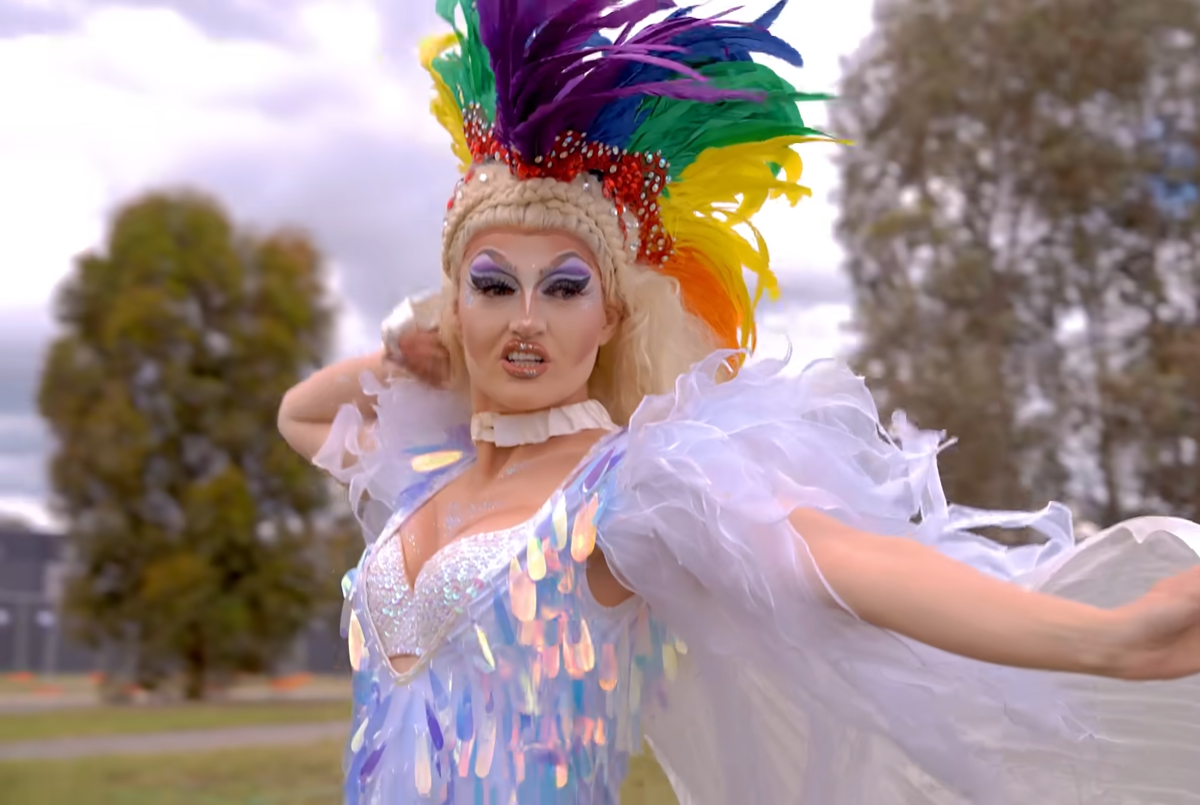
Drag queen dances in “Kangaroo Time” Photo: Screenshot
“Kangaroo Time,” a music video featuring drag queens, kangaroos, and ballet dancers, has won a prestigious international science competition.
Queer behavioral ecologist Weliton Menário Costa took home the top prize at the Eurovision-like “Dance Your Ph.D.” competition. Costa has spent years studying eastern grey kangaroos.
Related:
Costa’s thesis research, “Personality, Social Environment and Maternal-Level Effects: Insights from a Wild Kangaroo Population” investigated the marsupials’ social dynamics. Kangaroos develop unique personalities early in life and can be influenced by their siblings, parents, and other groups. They also adapt their behavior depending on the group they’re socializing with.
Never Miss a Beat
Subscribe to our daily newsletter to stay ahead of the latest LGBTQ+ political news and insights.
As a queer immigrant, Costa said that he understood the dynamic personally.
“Differences lead to diversity,” he points out at the end of the video. “It exists within any given species; it is just natural.”
Sponsored by Science magazine and the American Association for the Advancement of Science, the contest is a fun challenge for scientists to show off their knowledge in a manner better understood by lay people. The contest covers four areas: biology, chemistry, physics, and social science.
It started when microbiologist John Bohannon hosted a dance party for fellow scientists, but no one wanted to actually dance.
“It’s very hard to get anyone to dance, particularly scientists,” Bohannon told NPR’s Barry Gordemer in 2021. “Their parties are not on the dancey side.”
So, he devised an experiment. Would he be able to get them to dance if he made it a challenge and offered a prize?
“One thing you can count on with scientists is they’re competitive and they have a sense of humor about their work, so I thought, let’s just put it all together,” he said.
“Don’t you wish you lived in a world where you could just ask people to pull out their phones to watch an online video explaining your Ph.D. research through interpretive dance?” the pitch for the contest asks. And apparently, scientists do. Dozens of videos are submitted every year.
Costa won a total of $2,750 for his upbeat dance video. A video about the invasive browntail moth took home second place.
Good News is your section for queer joy! Subscribe to our newsletter to get the most positive and fun stories from the site delivered to your inbox every weekend. Send us your suggestions for uplifiting and inspiring stories.

